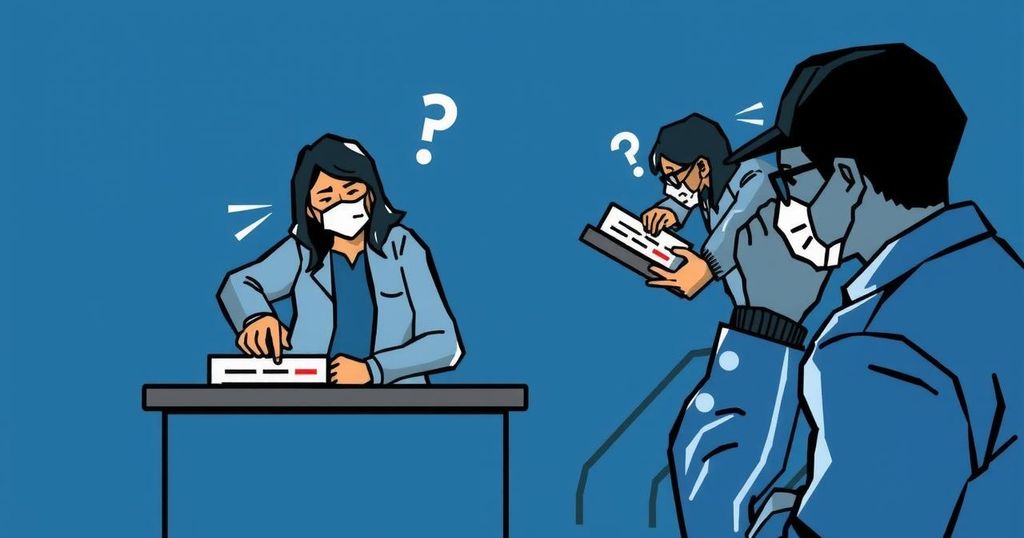Republican Poll Watchers: A Wave of Partisan Oversight Amidst Election Integrity Concerns

With heightened levels of distrust in the election process, Republicans are mobilizing a large number of poll watchers in key battleground states for the upcoming elections. This phenomenon, however, has raised concerns among election officials about the potential for voter intimidation and vigilantism, particularly given the troubling precedent set in previous elections. While poll watchers aim to provide transparency, their presence could escalate tensions surrounding electoral integrity.
Amid deep-seated distrust in the American election system, a significant influx of Republican poll watchers is emerging in battleground states, aiming ostensibly to deter electoral fraud as the November 2024 elections approach. Jeff Fuller, a retired Army Special Forces officer and a vocal proponent of the 2020 election fraud narrative, asserts that the mere presence of these volunteers functions as a deterrent since “everybody knows somebody is watching.” Poll watchers, traditionally appointed by both major parties, are charged with observing the electoral process to ensure transparency and report any irregularities to party lawyers for further investigation. The Republican National Committee claims that over 175,000 volunteers have registered to observe the upcoming elections, which represents an unprecedented mobilization effort. This surge in poll watching is met with concern from election officials who fear potential vigilantism and disruptive behavior, recalling incidents from previous elections where poll watchers have engaged in intimidation. Andrew Garber of the Brennan Center for Justice warns that the objectives of certain poll watchers could veer toward partisanship and misinformation dissemination. As many as 66 percent of Trump supporters harbor doubts about the legitimacy of the 2020 election results, significantly influencing the current climate of suspicion among voters. Consequently, concerns persist that some poll watchers may needlessly fabricate claims of fraud, thereby exacerbating tensions around the electoral process. Veteran election officials express their apprehension regarding possible confrontational tactics and have begun implementing strategies to handle the emerging challenges effectively. The specter of threats and violence has cast a long shadow over the roles of election officials, with some having faced harassment and intimidation post-elections. In a climate increasingly fraught with allegations of fraud and external pressures, the discourse surrounding poll watching remains pivotal to shaping the electoral landscape leading into 2024.
The recruitment of poll watchers has escalated dramatically in recent election cycles, largely driven by an enduring distrust in the electoral process among Republican constituents. Allegations of widespread fraud, particularly concerning the 2020 Presidential election, have emboldened many to take action, resulting in a significant mobilization of party-affiliated observers. Historically, poll watchers are essential to observing the integrity of elections; however, their recent activities hint at a concerning trend towards partisanship and potential intimidation. The increase in numbers is notable, with statements from Republican leaders indicating that they are training volunteers to scrutinize the conduct of elections closely. Such developments coincide with a rising narrative that seeks to challenge the legitimacy of electoral processes, particularly among those aligned with the Trump electoral base. Overall, the climate produced by these actions feeds into a broader dialogue about election integrity, security, and civic responsibility.
In conclusion, the cultivation of a vast volunteer base of Republican poll watchers raises significant implications for the electoral process as the 2024 elections draw near. While claims of fraud during previous elections continue to mobilize support for these initiatives, the potential for disruptive and intimidating behaviors creates a precarious environment for election officials and voters alike. It is paramount that while observers fulfill a fundamental role in ensuring electoral transparency, their involvement must not devolve into actions that undermine the integrity and safety of the electoral process.
Original Source: abcnews.go.com







